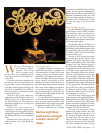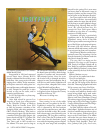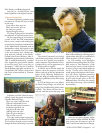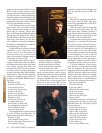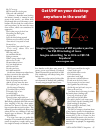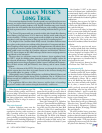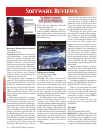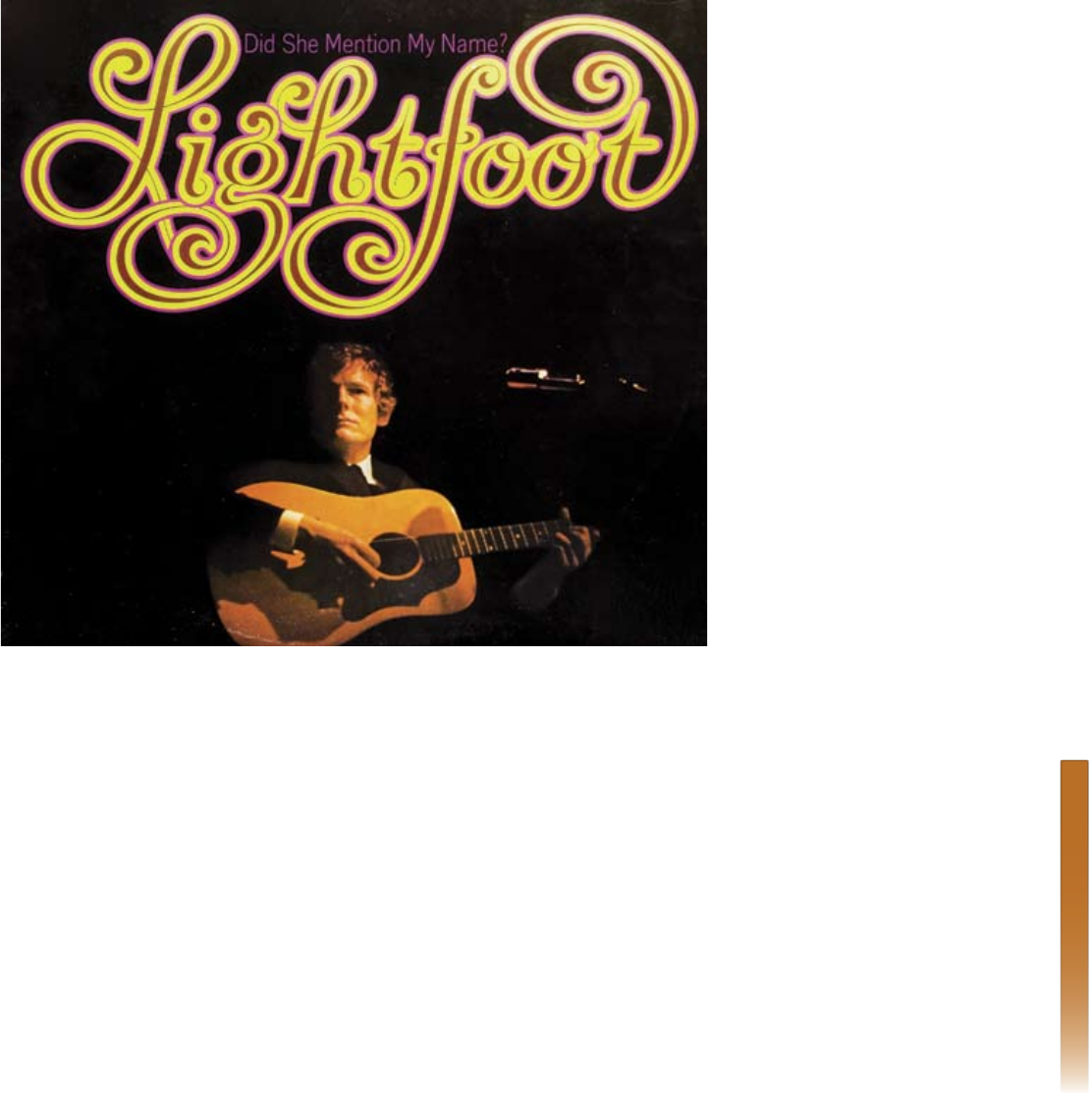
Feedback
Software
W
e are in Peterborough, in
the Province of Ontario,
Canada. This evening
there is a benefit concert
for the victims of severe flooding, and the
local hockey arena has been turned into a
concert hall.
The mood is feverish, for tonight marks
the return of a hero. For the first time since
his grave illness, save for a brief appearance
in Orillia, Gordon Lightfoot will sing for his
fans. He is accompanied by his best friend,
his acoustic guitar. An ovation greets him as
he steps onto the stage.
Then all is quiet. In the audience are
staff members of the McMaster University
Medical Centre. One of those members is
Dr. Michael Marcaccio, who operated on
Lightfoot several times over a 13-week period
in the Fall of 2002.
Thinner now, with a voice no less
pleasant for its weariness, Lightfoot seems
surprisingly at ease. He sings five of his hits,
including the legendary If You Could Read
My Mind and his most recent, Inspiration
Lady.
Emotion can be read on the faces of the
audience members. He is back, finally, this
native son.
The vagabond poet
A prolific composer and lyricist, an
unparalleled performer, a guitarist, an
environmentalist, the poet of love and
tragedy, a pioneer of Canadian music,
the darling of Canadians for decades…
such is my subject. How many frontiers
has he crossed, guitar slung over his
shoulder, how many halls has he occu-
pied, how many dreams has he launched?
How many has he helped, motivated or
even saved, among the lonely, the love-
lorn, the discouraged, or those down on
their luck, with a few simple words, with
an enchanting melody?
It is a mark of the love so many have
for him that their hearts skipped a beat
when came the agonizing news of his
hospitalization, for surgery from which
he might not awaken. It was in 2002.
His fans could and can be found
everywhere, in all walks of life, in all age
groups, for our romantic troubadour is
back on the road. He travels his beloved
land that is bounded by three seas. And
he is every bit as welcome in Europe, in
Australia, in the United States, where
he takes his songs and wins over the
crowds.
Hints of things to come
Gordon Meredith Lightfoot is born
on November 1938 in Orillia, Ontario.
The small port town near the pictur-
esque junction of lakes Simcoe and
Couchiching, not far from Georgian
Bay, is known for its pleasant countryside
and its wide open spaces.
Gordon Meredith Sr., his father, is a
descendant of the Lightfoots of Scotland
and Ireland, and his mother Jessica traces
her roots back to the first white settlers
in Orillia, which had until then been
entirely a Native area.
Gordon is still a young boy when
his parents split up. His gift of a fine
soprano voice opens the doors of St.
Paul’s United Church choir, with which
he sings I’m a Little Teapot at the age of
five. The choir conductor, Ray Williams,
is mightily impressed and endeavors to
teach him to put expression into his
songs. His mother, whose love of music
he seems to have inherited, encourages
him, naturally, to become a singer. It is
the right choice. When he is 10, accom-
panied at the piano by his sister Beverly,
he makes his first recording. His parents
are his biggest fans. His mother clears
the way for him to sing at such halls as
the Kiwanis, and his father is always
ready to drive him where he needs to go
for a rehearsal or a concert.
In 1950 he takes classical piano and
singing lessons, still with Ray Williams,
and his performance of Bless This House at
an amateur contest at the Orillia Opera
Station earns him second prize. It is only
the beginning, for the following year he
records a 78 of The Lord’s Prayer.
The next two years are a turning
point for the young Gordon. At a com-
petition of singers younger than 13 at
the Toronto Kiwanis annual festival,
he comes first. He wins again a year
later, this time in the category of sing-
ers whose voices have not yet changed.
The prize includes the chance to sing
by Reine Lessard
Gordon Lightfoot,
and how he changed
a whole corner of
music
ULTRA HIGH FIDELITY Magazine 63











